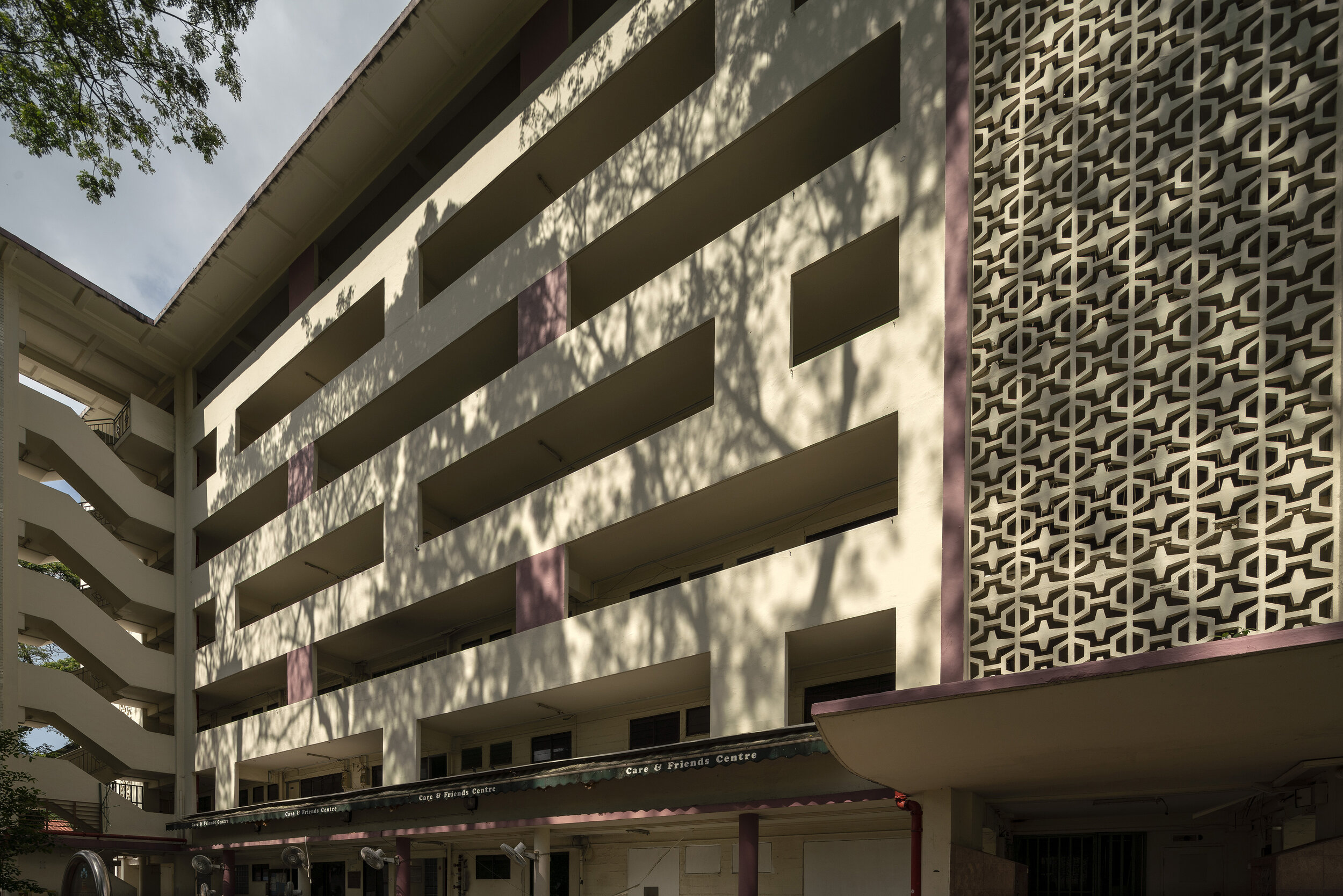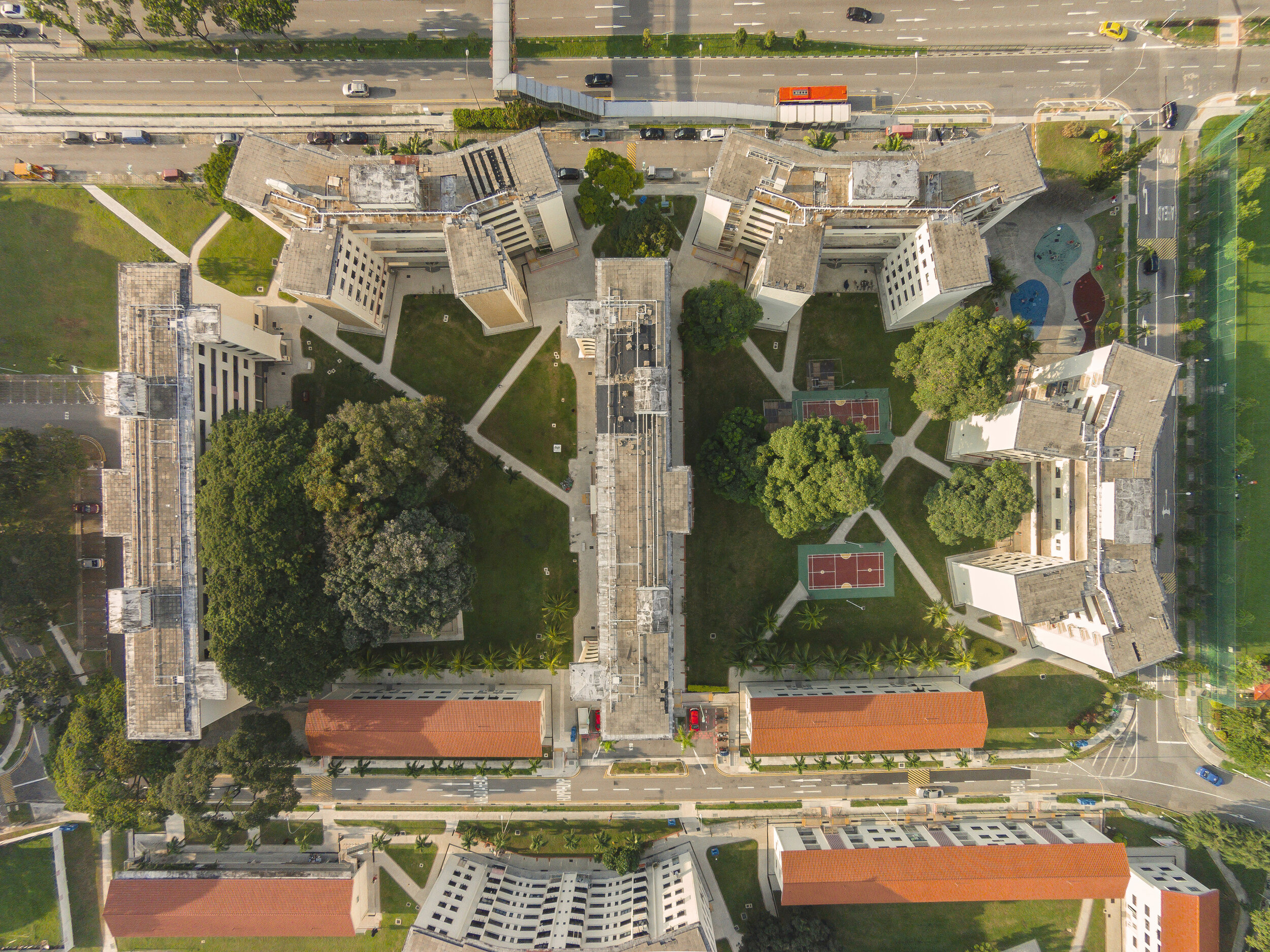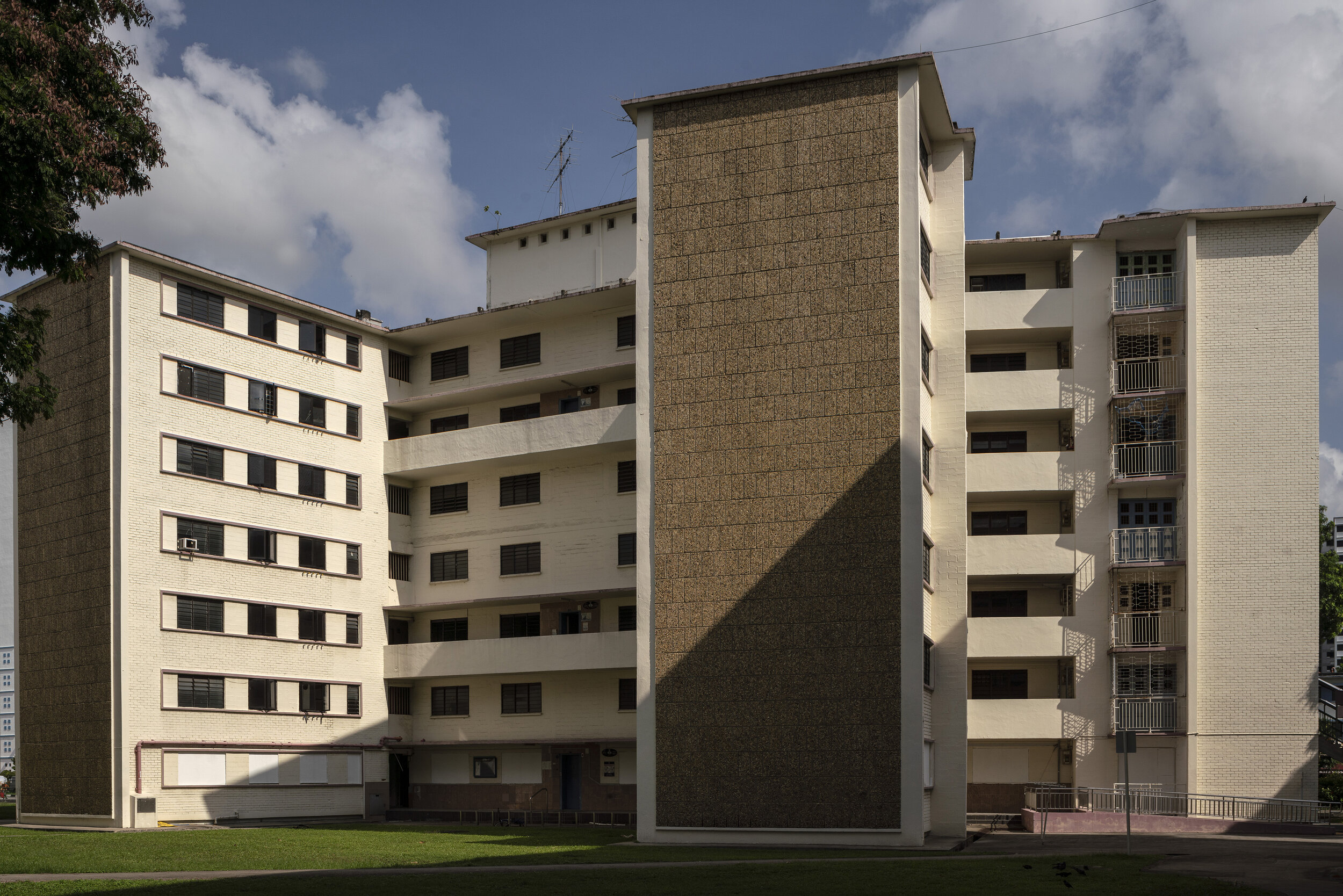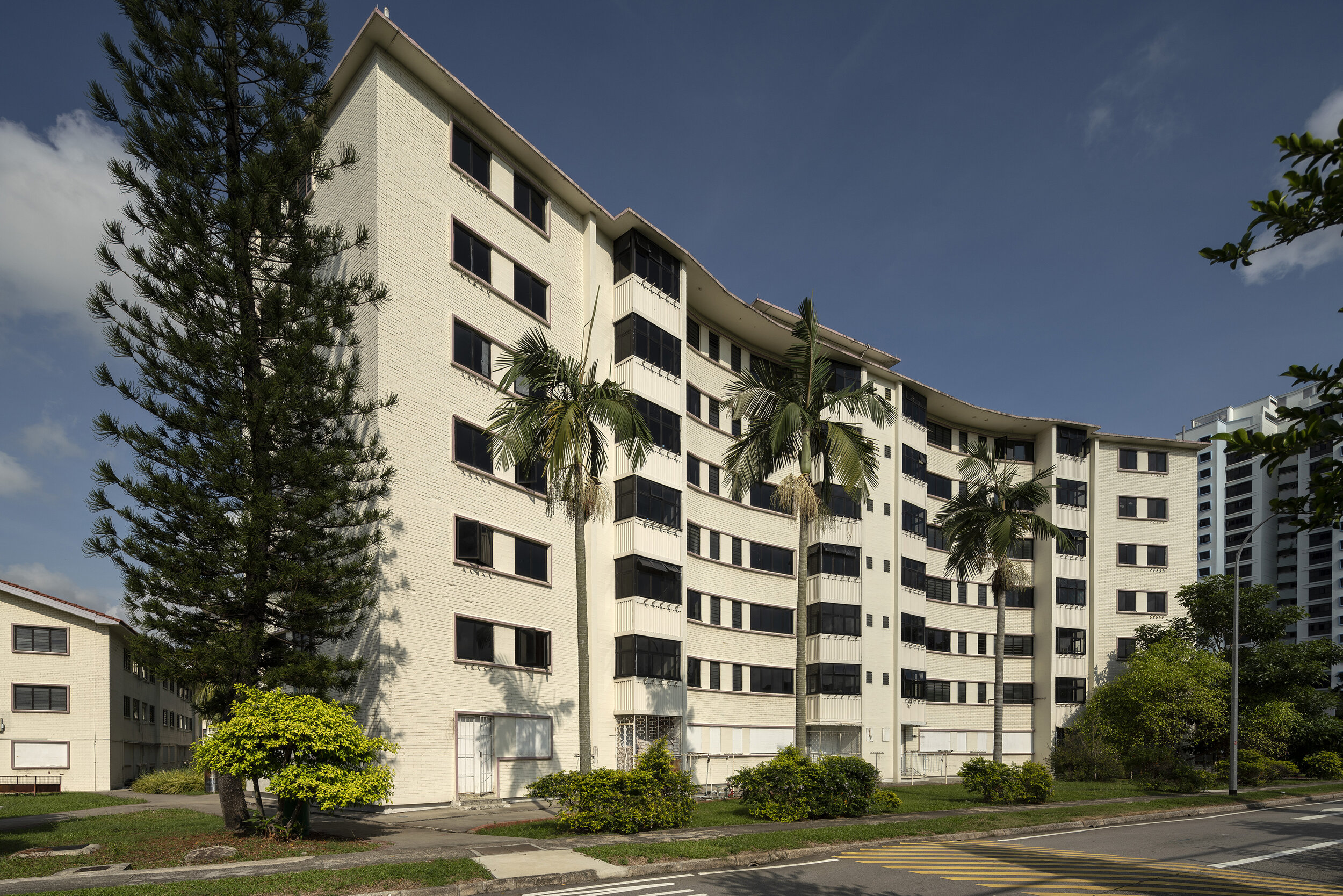Old Airport Road Estate (Dakota Crescent)
Old Airport Road Estate is one of the last estates designed and built by the Singapore Improvement Trust (SIT) before its dissolution in 1960. The estate is sited on the extensive landing grounds of the former pre-war Singapore Civil Aerodrome (1937), hence its name. To commemorate the history of the area, its new roads and streets were named after aeroplane models of the era, such as Dakota Crescent.
Old Airport Road Estate marked Singapore’s eastward expansion during the post-war years and was developed alongside Queenstown in the west. The estate is distinguished by a wide morphological variety, ranging from two- to seven-storey blocks of different configurations, possibly as a testbed for efficient and affordable high-rise housing design. In addition, unconventional and innovative construction materials, such as precast granolithic panels, steel tubing, and hollow cement blocks that are adapted from industrial usages were experimented with on a large scale for their economy and functionality. Completed in 1959, the estate was further expanded during the 1960s by the Housing and Development Board (HDB), the successor to SIT. As part of balancing redevelopment efforts with preserving the area’s rich heritage, it was announced in 2017 that the central cluster of buildings around the courtyard will be retained and repurposed, while the rest of the estate will be redeveloped.
Location: 20 Dakota Cres, Block 20, Singapore 390020
Architects: Singapore Improvement Trust
Year: 1958
Status: Partially Conserved in 2017
Last modified on 12 May 2021. Description by Ho Weng Hin.





